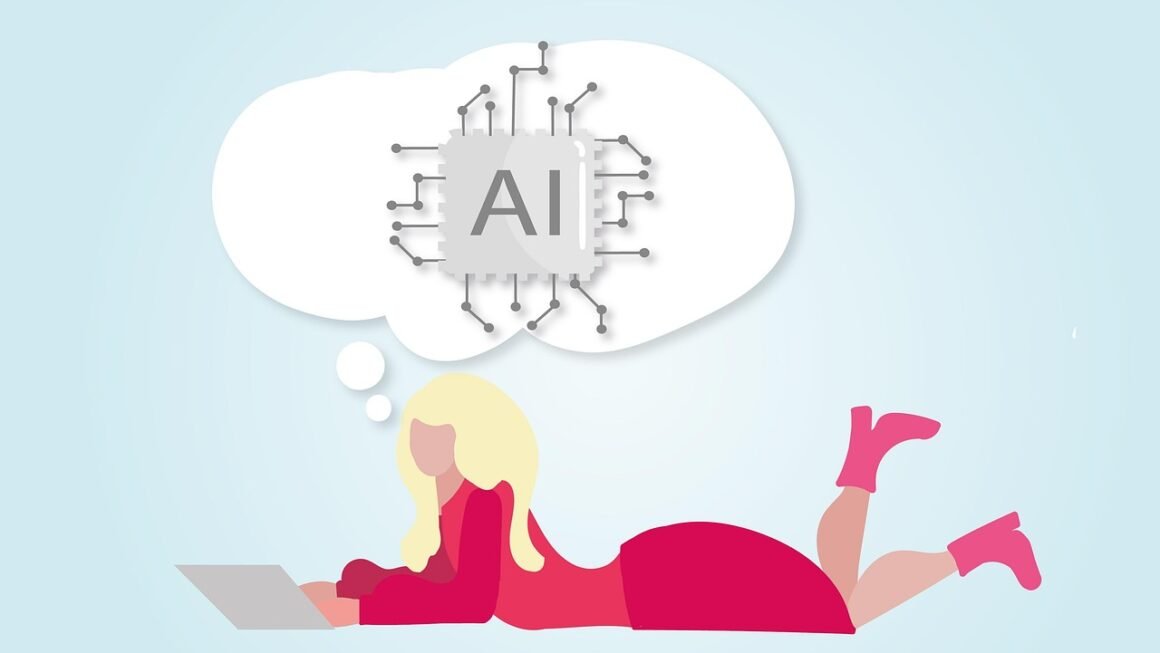The rise of artificial intelligence (AI) promises transformative advancements across industries, from healthcare and finance to transportation and entertainment. However, this rapid progress also raises critical ethical questions. As AI systems become increasingly integrated into our lives, it’s crucial to address the potential risks and ensure that these technologies are developed and deployed responsibly, fairly, and for the benefit of all humanity. This blog post delves into the complex landscape of AI ethics, exploring key challenges, practical considerations, and actionable strategies for navigating this evolving field.
Understanding AI Ethics: A Comprehensive Overview
What is AI Ethics?
AI ethics is a branch of applied ethics that examines the moral principles, values, and guidelines governing the development, deployment, and use of artificial intelligence. It seeks to address the ethical implications of AI systems, ensuring they are aligned with human values, respect fundamental rights, and promote the common good. This includes considering issues like:
- Fairness and Bias: Preventing discriminatory outcomes and ensuring equitable access to AI-driven benefits.
- Transparency and Explainability: Making AI decision-making processes understandable and accountable.
- Privacy and Data Security: Protecting personal information and preventing misuse of data.
- Autonomy and Responsibility: Defining the limits of AI autonomy and establishing clear lines of accountability for AI actions.
- Safety and Security: Minimizing the risk of unintended consequences and malicious use of AI.
Why is AI Ethics Important?
The importance of AI ethics stems from the potential for AI to profoundly impact society in both positive and negative ways. Without careful ethical considerations, AI systems can exacerbate existing inequalities, infringe on human rights, and create new forms of harm. For example:
- Biased algorithms: AI-powered hiring tools might unintentionally discriminate against certain demographic groups, perpetuating systemic biases in the workforce.
- Autonomous weapons: The development of lethal autonomous weapons systems raises concerns about the erosion of human control over warfare and the potential for unintended escalation.
- Surveillance technologies: AI-powered surveillance systems can be used to track and monitor individuals, infringing on their privacy and chilling freedom of expression.
According to a recent study by the AI Now Institute at NYU, algorithmic bias remains a significant concern, particularly in areas like criminal justice, healthcare, and education. Addressing these ethical challenges is crucial for building trust in AI and ensuring its responsible adoption.
Key Ethical Challenges in AI
Bias and Discrimination
AI systems learn from data, and if that data reflects existing societal biases, the AI will likely perpetuate and even amplify those biases. This can lead to discriminatory outcomes in areas such as:
- Loan applications: AI algorithms may deny loans to individuals from certain neighborhoods based on historical lending patterns, reinforcing discriminatory practices.
- Criminal justice: Risk assessment tools used in sentencing may disproportionately flag individuals from minority groups, leading to harsher penalties.
- Healthcare: AI-powered diagnostic tools may be less accurate for certain demographic groups due to a lack of representative data.
- Actionable Takeaway: To mitigate bias, it’s essential to use diverse and representative datasets, carefully evaluate AI models for fairness, and implement auditing mechanisms to detect and correct discriminatory outcomes.
Lack of Transparency and Explainability
Many AI systems, particularly those based on deep learning, operate as “black boxes,” making it difficult to understand how they arrive at their decisions. This lack of transparency raises concerns about accountability and trust, especially in high-stakes applications.
- Medical diagnosis: If an AI recommends a particular treatment, doctors need to understand the reasoning behind the recommendation to ensure its validity and appropriateness.
- Autonomous driving: In the event of an accident, it’s crucial to understand why the self-driving car made certain decisions to determine responsibility and prevent future incidents.
- Actionable Takeaway: Prioritize the development of explainable AI (XAI) techniques that can provide insights into the decision-making processes of AI systems. Demand transparency from AI vendors and incorporate explainability considerations into the design of AI solutions.
Privacy and Data Security
AI systems often rely on vast amounts of data, including personal information, which raises concerns about privacy and data security. The misuse of data, unauthorized access, and data breaches can have serious consequences for individuals and organizations.
- Facial recognition: AI-powered facial recognition technology can be used to track individuals without their consent, raising concerns about surveillance and the erosion of privacy.
- Data breaches: Sensitive personal data stored and processed by AI systems is vulnerable to cyberattacks, potentially leading to identity theft, financial fraud, and other harms.
- Actionable Takeaway: Implement robust data security measures, comply with privacy regulations such as GDPR and CCPA, and prioritize data anonymization and privacy-enhancing technologies. Obtain informed consent from individuals before collecting and using their personal data.
Practical Considerations for Implementing AI Ethics
Develop an AI Ethics Framework
Organizations should develop a comprehensive AI ethics framework that outlines their commitment to responsible AI development and deployment. This framework should include:
- Ethical principles: Define the core ethical principles that will guide AI development and use, such as fairness, transparency, accountability, and respect for human rights.
- Governance structures: Establish clear roles and responsibilities for overseeing AI ethics within the organization, including an ethics review board or committee.
- Risk assessment procedures: Implement procedures for identifying and assessing the ethical risks associated with AI projects.
Conduct Ethical Impact Assessments
Before deploying an AI system, organizations should conduct a thorough ethical impact assessment to evaluate its potential impact on individuals and society. This assessment should consider:
- Potential biases: Identify and mitigate potential sources of bias in the data and algorithms used by the AI system.
- Privacy implications: Assess the privacy risks associated with the AI system and implement measures to protect personal data.
- Social and economic consequences: Evaluate the potential social and economic impacts of the AI system, including its effects on employment and inequality.
Foster Collaboration and Dialogue
Addressing the ethical challenges of AI requires collaboration and dialogue among stakeholders, including:
- AI developers: Engineers and scientists need to be trained in ethical AI principles and equipped with the tools and techniques to build responsible AI systems.
- Policymakers: Governments and regulatory bodies need to develop clear and consistent policies to govern the development and use of AI.
- Civil society organizations:* Advocacy groups and other civil society organizations play a crucial role in raising awareness about AI ethics and holding organizations accountable.
Conclusion
AI ethics is not merely an abstract concept; it’s a critical imperative for ensuring that AI technologies are used to benefit humanity. By proactively addressing the ethical challenges associated with AI, we can mitigate potential risks, promote fairness, and build trust in these powerful technologies. Developing ethical frameworks, conducting impact assessments, and fostering collaboration are essential steps toward creating a future where AI serves as a force for good. It’s a journey that requires constant vigilance, adaptation, and a commitment to human values. As AI continues to evolve, so too must our ethical considerations, ensuring a responsible and equitable future for all.



